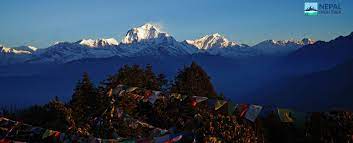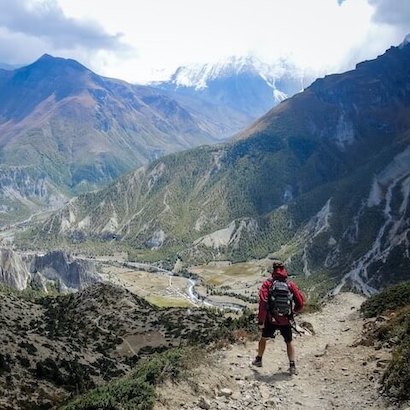Overview
Mt. Everest Expedition is a lifetime mountaineering experience that allows you to stand on the highest point in the world.
Ask an adventurer about their dream, and they will answer you with a word; EVEREST. Who would not want to reach the top of the world? Who would not want to touch the sky? It’s the trip of a lifetime, the Everest Expedition. Mt. Everest is the highest mountain in the world and is located in the Himalayas, on the border between Nepal and China. Mt. Everest, also known as The Sagarmatha in Nepali is the tallest peak on earth with an altitude of 8848.86m. The southern face lies in Nepal whereas the northern face is in Tibet. In 1715, China surveyed the mountain for the first time while they were mapping Chinese territory and depicted it as Mount Qomolangma. British Indian government 1856 again measured Mount Everest during their Great Trigonometry Survey. Back then, it was named Peak XV and said to be 8840m tall.
Peak XV was renamed after Sir George Everest as Mount Everest, the name given in his honor, who was a lead surveyor in 1856. Sir George was a Welsh Surveyor; he was the surveyor-general of India for thirteen years from 1830. Everest has fascinated mountaineers all around the globe since the 1920s when Tibet opened climbing in the early 1920s. In 1922 British Expedition team led by Charles Bruce tried to scale the summit of Mount Everest for the first time. It was Edward Norton in his second attempt along with the British Expedition team that set the height of 8572m. The mountaineers George Mallory and Andrew Irvine disappeared on the third attempt. Mallory’s body was found in 1999. There were several attempts made to Everest before the successful attempt made by Edmund Hillary and Tenzing Norgay on 29 May 1953 via the South route. It is now reported that around 1000 ascent attempts are made every year.
Mount Everest Expedition is undoubtedly a lifetime opportunity. Nevertheless, these expeditions encounter many hindrances such as high altitude, severe weather conditions, and avalanches. One must be well-trained before actually trying it. You need to get your body ready for the 8848.86m-foot climb to Everest’s summit. Depending on your current level of fitness, you need to train for several months before you start your ascent. A climber must build his/her cardiovascular strength along with muscular strength; oxygen level drops by 60-70 percent from sea level. Also, make sure you can carry big backpacks to the top as you will be carrying a cylinder of oxygen and large bag packs along with you. One must acclimatize to weather conditions and be prepared for rock falls, and avalanches. Learning rescue techniques would be an added advantage.
The Seven Summit Treks, Everest expedition will begin in the first week of April starting in Kathmandu. We will take the southern route to the summit. You will have a couple of days for the preparation of goods and equipment and paper works. Afterward, you will take a flight to Lukla from where the real treks start to base camp which takes you around 7 days on foot. as per the program. This trip suits those who have previous experiences with a few 7000m peaks or even more. We will move on to Camp I (6,065m) where we will see the Khumbu glacier. Khumbu Glacier is around 450m on a gradual slope to Camp II (6,750m) and around 610m to Camp III (7,300m). Camp III is located at the head of Lhotse. From this point onwards, you will need oxygen cylinders. You will reach Camp IV (7,910m) after just crossing 8000m elevations. This point is also known as the Death Zone.
Our Airbus, Heli Everest will all the time be supporting our team by supplying fresh – fruits, vegetables, meats, and other food items almost every day, and it’s also always ready for your safety at your needs.
” We await to serve you our service and share our experience with you “
WHY CLIMB MT. EVEREST WITH US?
- Highly qualified, professional, friendly, and experienced climbing Sherpa guide, Kitchen staff, and Basecamp Manager.
- Well-equipped with climbing equipment and logistic support for base camp and higher camps.
- Safety is a top priority for us, and we take every step to minimize risks and ensure the well-being of our clients.
- We offer a variety of itineraries to suit different abilities and interests, so you can choose the option that best meets your needs.
- Hi-tech in weather forecast and communication
- Easy Helicopter charter service when needed (extra charge to be applied)
- 1 climbing Sherpa to each member






